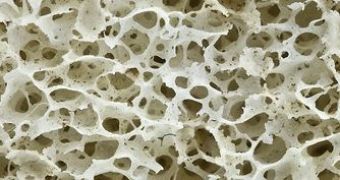A new research carried out by scientists from Johns Hopkins and the National Institute on Aging (NIA), part of the National Institutes of Health suggested that men that develop prostate cancer that spreads throughout the body and reaches the bones, have denser bones as they age, unlike men free of the illness. This finding was published in the July British Journal of Urology International.
If this proves to be a generalized phenomenon,it could help scientists gain a better grasp on what causes prostate cancer and its spread. Scientists have observed that prostate cancer that spreads and metastasize, in most cases goes to the bone. Stacy Loeb, M.D., a resident in the Department of Urology at the Johns Hopkins University School of Medicine, and her colleagues thought they should investigate if there is any connection between prostate cancer development and bone caracteristics.
“We reasoned there may be some difference between men who develop prostate cancer, especially metastatic disease, and those who don't, and it was logical to see if there was something different about their bones,” said Loeb.
For the research, they used data from the National Institute on Aging's Baltimore Longitudinal Study of Aging. This is a long-term study that has collected health-related information from hundreds of Baltimore-area participants since 1958. Scientists noted data on bone mineral density of 519 men, from 1973 to 1984, and verified if they had developed prostate cancer later. The results showed that 76 men had prostate cancer and also a bone density that did not alter with age - normally, men and women have lower bone density with age. The findings were the same after accounting for lifestyle factors like smoking, BMI, calcium and vitamin D.
Moreover, the 28 men that developed a more severe form of the disease, had the highest bone density. Still, scientists concluded that the number of patients is too small to allow a generalized conclusion. They also say that their research allowed them to better understand the link between bones and prostate cancer and that they will keep searching for other common factors that might connect bone density to the disease.
“If we can elucidate the underlying pathways, we could develop strategies for preventing prostate cancer from occurring or spreading,” Loeb added, as related by Science Daily.

 14 DAY TRIAL //
14 DAY TRIAL //